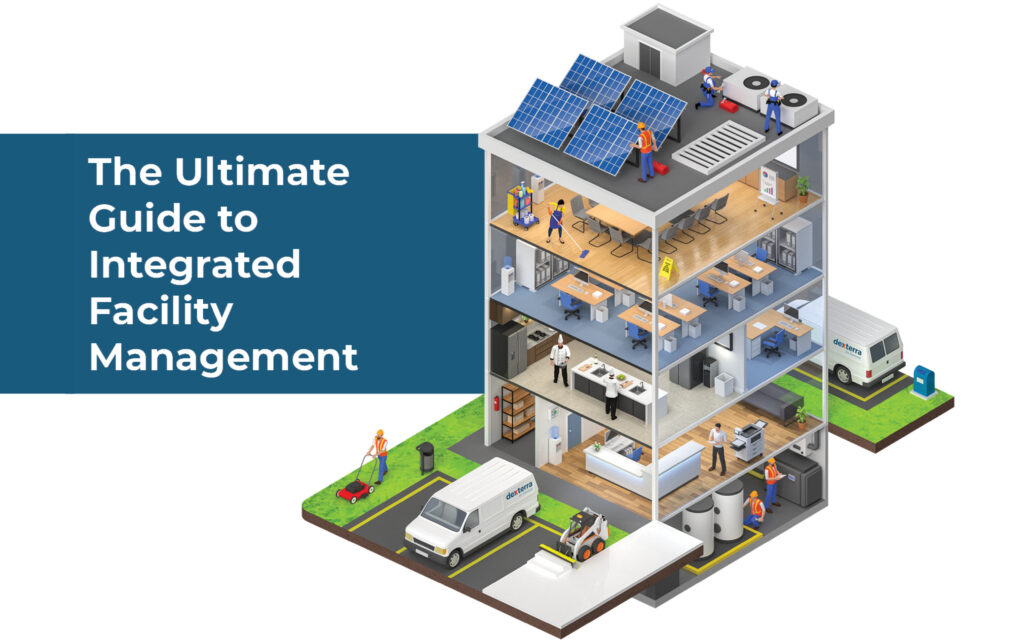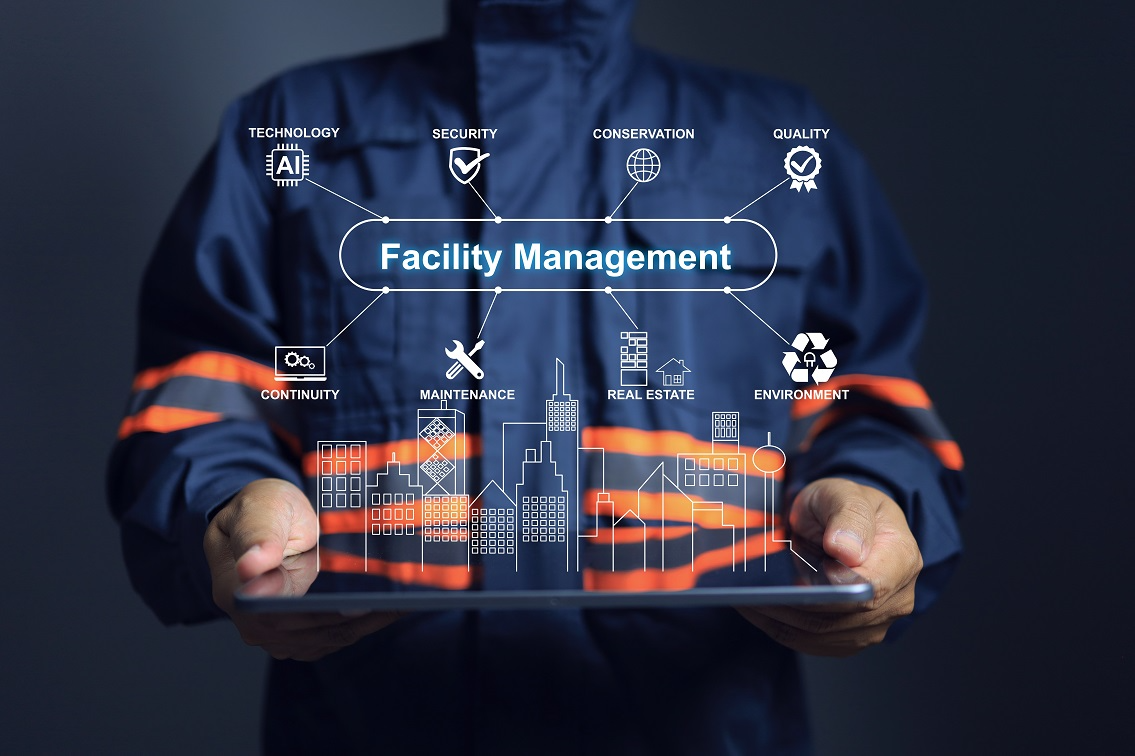How Total Facility Management Helps Businesses Maximize Asset Utilization
Top Advantages of Total Facility Management for Streamlined Operations
Total Facility Management (TFM) stands for a calculated technique to improving operational effectiveness by incorporating different solutions, such as maintenance and safety and security, under a unified management framework. This debt consolidation not only decreases redundancies but also leverages data analytics for notified decision-making and predictive maintenance. TFM assists in streamlined communication amongst stakeholders, aligning operations with more comprehensive organizational purposes. The question continues to be: what certain benefits can organizations harness from embracing TFM, and exactly how might these benefits change their functional landscape?
Boosted Operational Effectiveness
Improved functional performance is a main benefit of implementing total facility management (TFM) strategies. TFM includes an extensive approach to taking care of a facility's sources, processes, and framework, inevitably improving operations. By combining numerous solutions-- such as upkeep, cleansing, safety, and area management-- TFM reduces redundancies and boosts sychronisation among different operational features.
The integration of technology more amplifies this effectiveness. Advanced facility management systems give real-time data analytics, allowing facility supervisors to make educated choices that enhance workflow and resource allotment. Anticipating maintenance techniques, for instance, expect tools failings before they take place, reducing downtime and expanding asset life expectancy.
Furthermore, TFM advertises standard processes across numerous departments, making certain consistency and high quality in service shipment. This uniformity reduces functional disruptions and cultivates a more collaborative working setting. Consequently, employees can concentrate on their core duties, driving productivity and boosting overall performance.

Cost Reduction and Savings
Applying total facility management (TFM) not just boosts functional effectiveness yet also significantly adds to set you back reduction and financial savings. By consolidating various services under a single management framework, companies can remove redundancies and improve procedures, consequently decreasing operational costs. TFM allows better purchase methods, allowing business to negotiate bulk buying agreements with suppliers and service suppliers, resulting in reduced prices.
In addition, TFM emphasizes precautionary maintenance, which decreases unanticipated malfunctions and extends the lifespan of crucial equipment. This positive strategy not just minimizes fixing costs yet also enhances the reliability of facilitiess, guaranteeing undisturbed operations. Furthermore, power efficiency efforts, often a key focus of TFM, bring about substantial savings on utility bills, as facilitiess are enhanced for minimized energy usage.
Improved Resource Management
Effective source management is a foundation of total facility management (TFM), enabling companies to enhance using their possessions and workforce. By implementing TFM strategies, organizations can comprehensively examine their source appropriation, guaranteeing that every asset is utilized successfully and successfully. This all natural strategy allows for the identification of underperforming sources and the potential for reallocation or improvement.
Furthermore, TFM helps with the integration of technology for real-time surveillance of resources, which helps in predicting maintenance needs and preventing pricey downtime. By leveraging information analytics, companies can make informed choices concerning resource release, inevitably enhancing performance and Full Report reducing waste.
Furthermore, TFM advertises a society of continual enhancement, motivating groups to on a regular basis examine and fine-tune their resource management practices. Total Facility Management. This proactive position not just decreases operational interruptions yet likewise fosters development, as employees are encouraged to suggest enhancements based on their firsthand experiences with source usage
Streamlined Interaction Networks
In total facility management, structured communication networks play a crucial role in cultivating partnership and effectiveness across teams. Efficient interaction makes sure that all stakeholders, including facility supervisors, upkeep staff, and company, are lined up with organizational goals and operational needs. By developing clear lines of communication, teams can promptly attend to issues, share updates, and apply remedies, thus lessening downtime and improving performance.
With centralized interaction platforms, details is conveniently obtainable, enabling for real-time updates on upkeep demands, resource allowance, and task timelines. This openness not only reduces misunderstandings however additionally encourages staff members to make enlightened decisions promptly. Moreover, structured communication promotes much better control during emergencies, making certain that all personnel are informed and can react promptly.

Enhanced Concentrate On Core Activities
An essential benefit of total facility management is the boosted concentrate on core tasks, permitting organizations to focus on their key company objectives - Total Facility Management. By contracting out non-core features such as security, cleansing, and upkeep, firms can reroute their resources and energy towards tactical initiatives that directly contribute to their competitive benefit and development
Total facility management incorporates numerous functional tasks under a single umbrella, promoting effectiveness and reducing redundancy. This debt consolidation not only improves procedures however additionally click to read more enhances accountability, ensuring that every facet of the facility operates harmoniously without diverting interest from what really matters-- core business functions.
Additionally, this strategy makes it possible for employees to devote their time and efforts see page to tasks that drive innovation and boost consumer fulfillment, instead of obtaining bogged down by functional obstacles. With a reputable facility management partner taking care of everyday procedures, organizations can accomplish better dexterity, react quickly to market adjustments, and keep a sharper concentrate on their objective.
Inevitably, boosted emphasis on core tasks leads to enhanced total performance, allowing organizations to enhance their market setting and meet their tactical objectives better. - Total Facility Management
Conclusion
In conclusion, Total Facility Management significantly improves operational effectiveness by consolidating crucial services and leveraging information analytics for notified decision-making. Expense decreases and boosted source management add to general savings, while structured interaction networks foster cooperation among stakeholders. By permitting organizations to concentrate on core tasks, TFM not just optimizes efficiency but additionally reinforces market positioning. The combination of these advantages emphasizes the importance of TFM in accomplishing sustainable functional excellence.
Total Facility Management (TFM) stands for a calculated technique to improving operational efficiency by integrating different solutions, such as upkeep and protection, under a unified management framework.Improved functional effectiveness is a main advantage of implementing total facility management (TFM) methods. Advanced facility management systems supply real-time information analytics, allowing facility managers to make informed choices that enhance operations and source allotment.Implementing total facility management (TFM) not only boosts functional performance however likewise substantially adds to cost reduction and cost savings.Efficient resource management is a foundation of total facility management (TFM), enabling companies to maximize the use of their possessions and workforce.